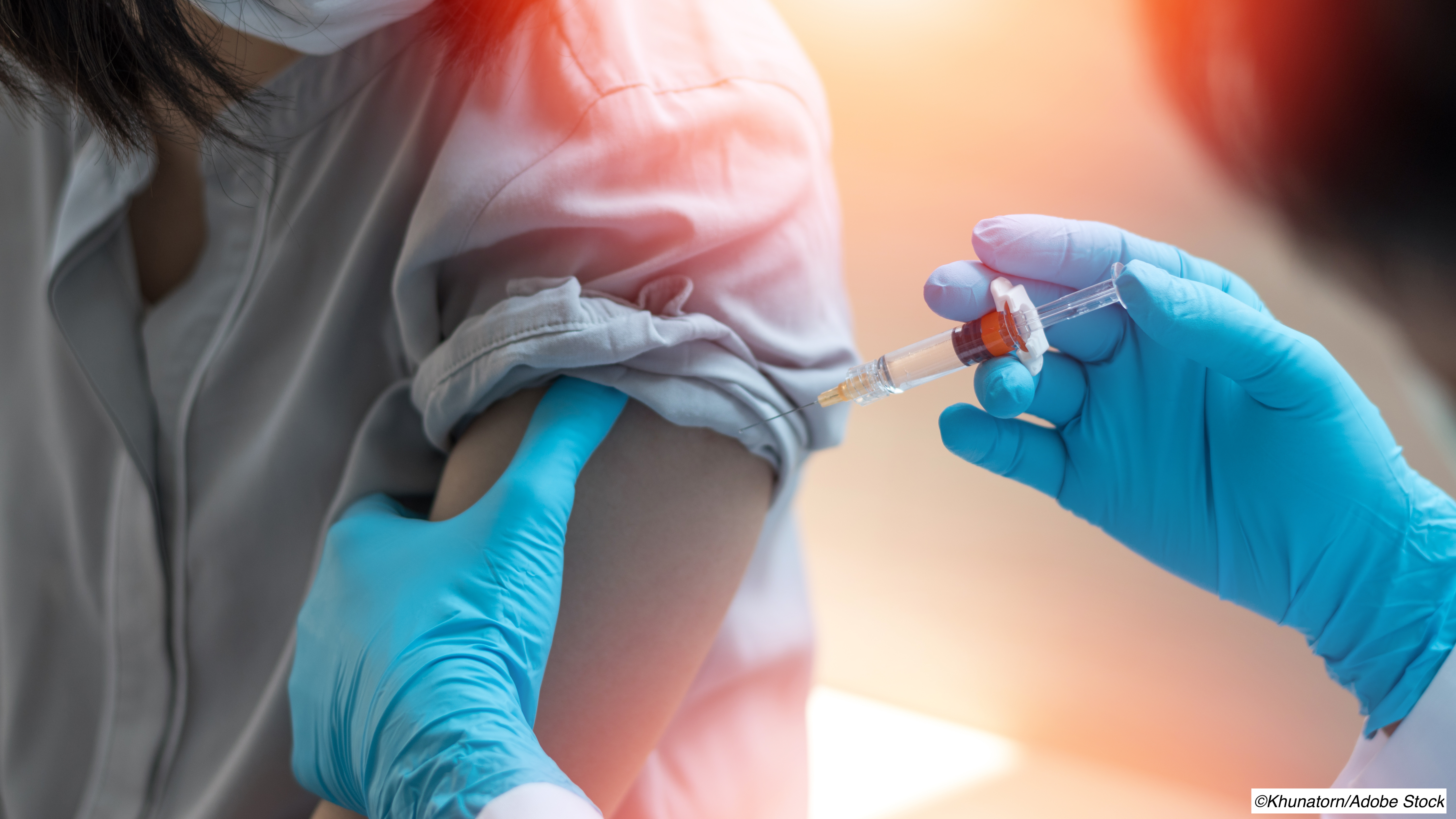In a real-world setting, Covid-19 vaccination effectively reduced SARS-CoV-2 infection in patients with cancer, but some patients may still be at early risk for infection despite vaccination. To optimize outcomes in these patients, extra risk reduction efforts should be employed, including serologic testing for vaccine response and a third vaccine dose, according to researchers from a nationwide Veterans Affairs study published in JAMA Oncology.
Vaccine efficacy was highest in patients not treated with systemic cancer treatments at least six months before vaccination (85%), followed by those treated with endocrine therapy (76%), but lowest in those treated with chemotherapy within three months of their first vaccine dose (57%).
“Although patients with cancer have poor Covid-19–related outcomes, the effectiveness of SARS-CoV-2 vaccination in this population is unclear because they were excluded from vaccination trials. Recent studies suggest that patients with cancer mount less robust antibody responses to vaccination than immunocompetent controls. The objective of this retrospective cohort study in the national Veterans Affairs (VA) health care system was to estimate the SARS-CoV-2 vaccination effectiveness in patients with cancer in a real-world setting during the 140-day period following initial vaccine availability,” according to Nathanael R. Fillmore, PhD, of the VA Boston Healthcare System, Dana-Farber Cancer Institute, and Harvard Medical School, Boston, and fellow researchers.
In this retrospective, multicenter study, Fillmore and colleagues included 184,485 patients with solid tumors or hematologic cancers who received systemic, cancer-directed treatment from the VA health care system. Patients had no positive, documented SARS-CoV-2 results as of Dec. 15, 2020.
For each day between Dec. 15, 2020, and May 4, 2021, they matched 29,152 newly vaccinated patients (median age: 74.1 years; 95% men; 71% non-Hispanic White) with unvaccinated controls for age, race, ethnicity, VA facility, rurality of residence, cancer type, and treatment type and timing. In all, 109,338 patients received a first vaccine dose and were followed for at least 28 days, and 106,109 patients received a second vaccine dose. In their analysis of the efficacy of the second vaccine dose, researchers included 18,312 matched patient pairs.
Documented SARS-CoV-2 infection was the primary outcome.
After a median of 47 days of follow-up, 436 patients developed SARS-CoV-2 infection, comprised of 161 vaccinated patients compared with 275 unvaccinated patients. Death occurred in 17 compared with 27 patients, respectively.
Beginning 14 days after the second vaccine dose, the overall vaccine efficacy in the entire cohort was 58% (95% CI: 39%-72%). Efficacy was higher in patients with solid tumors compared to those with hematologic cancers (66% versus 19%, respectively).
Vaccine efficacy was highest in patients who last received systemic therapy more than six months before vaccination, 14 days after the second dose (85%; 95% CI: 29%-100%), and those treated with endocrine therapy (76%; 95% CI: 50%-91%); and lower in those last treated three to six months prior (63%; 95% CI: 23%-87%) and in those who received therapy within three months before vaccination (54%: 95% CI: 28%-72%).
“Vaccination in VA patients with cancer is effective at reducing the incidence of SARS-CoV-2 infection. Fewer Covid-19–related deaths were observed in vaccinated than in unvaccinated patients, although estimation of vaccine effectiveness for death is limited by low event rates. Our study is the first, to our knowledge, to demonstrate vaccine effectiveness against SARS-CoV-2 infection in patients with cancer,” wrote Fillmore and colleagues.
“Notably, in our study, vaccine effectiveness in patients receiving endocrine therapy and those last receiving therapy more than six months before vaccination was similar to general population estimates,” they stressed.
“Our findings suggest that high-risk populations may benefit from additional mitigation measures, such as extended masking. Data from other immunosuppressed populations suggest that a third vaccine dose may improve effectiveness; additional work is needed to determine efficacy of a similar approach in patients with cancer, particularly those who were vaccinated during active treatment,” they concluded.
Study limitations include its limited power to assess vaccine efficacy against severe Covid-19 and Covid-19-related deaths, the inability to compare patients with cancer to those without, and possible misclassification of vaccination, SARS-CoV-2, and covariates due to receipt of care outside the VA.
-
In patients with cancer, SARS-CoV-2 vaccination was associated with lower infection rates, especially in those not receiving current systemic therapy and those receiving hormonal treatment.
-
Vaccine efficacy was lower in those treated with chemotherapy within three months of first Covid-19 vaccine dose, and extra risk reduction strategies are recommended for this population.
Liz Meszaros, Deputy Managing Editor, BreakingMED™
This work was supported by the Stanford Cancer Institute Innovation Award, the VA Office of Research and Development, Cooperative Studies Program, the Department of Defense, the VA Merit Review Award, and grants from the National Institutes of Health and the American Heart Association CAT-HD Center.
Fillmore has received support from the VA Office of Research and Development, Cooperative Studies Program and the American Heart Association CAT-HD Center.
Cat ID: 31
Topic ID: 79,31,730,933,118,935,31,926,561,927,151,928,925,934



